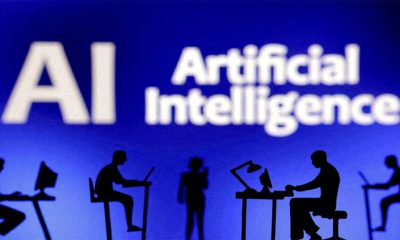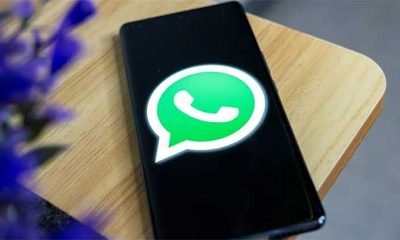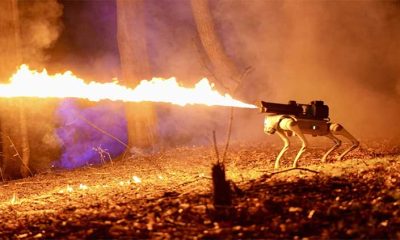Russian hackers were inside Ukrainian telecoms giant Kyivstar’s system from at least May last year in a cyberattack that should serve as a “big warning” to the West, Ukraine’s cyber spy chief told Reuters.
The hack, one of the most dramatic since Russia’s full-scale invasion nearly two years ago, knocked out services provided by Ukraine’s biggest telecoms operator for some 24 million users for days from Dec 12.
In an interview, Illia Vitiuk, head of the Security Service of Ukraine’s (SBU) cybersecurity department, disclosed exclusive details about the hack, which he said caused “disastrous” destruction and aimed to land a psychological blow and gather intelligence.
“This attack is a big message, a big warning, not only to Ukraine, but for the whole Western world to understand that no one is actually untouchable,” he said. He noted Kyivstar was a wealthy, private company that invested a lot in cybersecurity.
The attack wiped “almost everything”, including thousands of virtual servers and PCs, he said, describing it as probably the first example of a destructive cyberattack that “completely destroyed the core of a telecoms operator.”
During its investigation, the SBU found the hackers probably attempted to penetrate Kyivstar in March or earlier, he said in a Zoom interview on Dec. 27.
“For now, we can say securely, that they were in the system at least since May 2023,” he said. “I cannot say right now, since what time they had … full access: probably at least since November.”
The SBU assessed the hackers would have been able to steal personal information, understand the locations of phones, intercept SMS-messages and perhaps steal Telegram accounts with the level of access they gained, he said.
A Kyivstar spokesperson said the company was working closely with the SBU to investigate the attack and would take all necessary steps to eliminate future risks, adding: “No facts of leakage of personal and subscriber data have been revealed.”
Vitiuk said the SBU helped Kyivstar restore its systems within days and to repel new cyberattacks.
“After the major break there were a number of new attempts aimed at dealing more damage to the operator,” he said.
Kyivstar is the biggest of Ukraine’s three main telecoms operators and there are some 1.1 million Ukrainians who live in small towns and villages where there are no other providers, Vitiuk said.
People rushed to buy other SIM cards because of the attack, creating large queues. ATMs using Kyivstar SIM cards for the internet ceased to work and the air-raid siren – used during missile and drone attacks – did not function properly in some regions, he said.
He said the attack had no big impact on Ukraine’s military, which did not rely on telecoms operators and made use of what he described as “different algorithms and protocols”.
“Speaking about drone detection, speaking about missile detection, luckily, no, this situation didn’t affect us strongly,” he said.
RUSSIAN SANDWORM
Investigating the attack is harder because of the wiping of Kyivstar’s infrastructure.
Vitiuk said he was “pretty sure” it was carried out by Sandworm, a Russian military intelligence cyberwarfare unit that has been linked to cyberattacks in Ukraine and elsewhere.
A year ago, Sandworm penetrated a Ukrainian telecoms operator, but was detected by Kyiv because the SBU had itself been inside Russian systems, Vitiuk said, declining to identify the company. The earlier hack has not been previously reported.
Russia’s defence ministry did not respond to a written request for comment on Vitiuk’s remarks.
Vitiuk said the pattern of behaviour suggested telecoms operators could remain a target of Russian hackers. The SBU thwarted over 4,500 major cyberattacks on Ukrainian governmental bodies and critical infrastructure last year, he said.
A group called Solntsepyok, believed by the SBU to be affiliated with Sandworm, said it was responsible for the attack.
Vitiuk said SBU investigators were still working to establish how Kyivstar was penetrated or what type of Trojan horse malware could have been used to break in, adding that it could have been phishing, someone helping on the inside or something else.
If it was an inside job, the insider who helped the hackers did not have a high level of clearance in the company, as the hackers made use of malware used to steal hashes of passwords, he said.
Samples of that malware have been recovered and are being analysed, he added.
Kyivstar’s CEO, Oleksandr Komarov, said on Dec 20 that all the company’s services had been fully restored throughout the country. Vitiuk praised the SBU’s incident response effort to safely restore the systems.
The attack on Kyivstar may have been made easier because of similarities between it and Russian mobile operator Beeline, which was built with similar infrastructure, Vitiuk said.
The sheer size of Kyivstar’s infrastructure would have been easier to navigate with expert guidance, he added.
The destruction at Kyivstar began at around 5:00 am local time while Ukrainian President Volodymyr Zelenskiy was in Washington, pressing the West to continue supplying aid.
Vitiuk said the attack was not accompanied by a major missile and drone strike at a time when people were having communication difficulties, limiting its impact while also relinquishing a powerful intelligence-gathering tool.
Why the hackers chose Dec 12 was unclear, he said, adding: “Maybe some colonel wanted to become a general.”
Post Views: 55


 Sports3 months ago
Sports3 months ago
 Sports3 months ago
Sports3 months ago
 Fashion2 months ago
Fashion2 months ago
 pakistan3 months ago
pakistan3 months ago
 pakistan3 months ago
pakistan3 months ago
 World2 months ago
World2 months ago
 Sports2 months ago
Sports2 months ago
 World2 months ago
World2 months ago






















